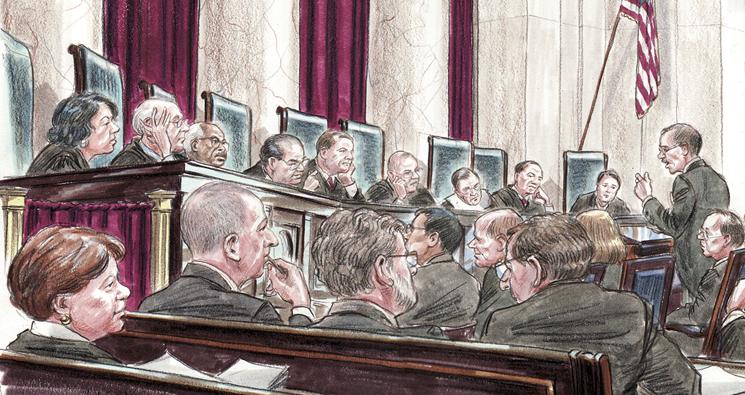ObamaCare: What Happens Next
The Supreme Court spent more than six hours over the past three days hearing oral arguments on the four issues involved in the ObamaCare case. You can read my posts on these issues here, regarding the Anti-Injunction Act, here, regarding the individual mandate, and here, regarding severability and the expansion of Medicaid.
Now that oral argument has concluded, what does the Supreme Court do next in the ObamaCare case?
The nine Justices will meet in a private conference this Friday to discuss and vote on the four issues. The Justices will vote in order of seniority, with Chief Justice Roberts (who, based on his position, is considered the most senior Justice) voting first, then Justice Scalia, and so on until the most junior Justice, Justice Kagan, votes. The vote, which is preliminary and non-binding, is necessary to determine whether there are at least five Justices (a majority) who agree on the various issues.
If Chief Justice Roberts is in the majority, he assigns the writing of the majority opinion to one of the Justices, including himself, who is in the majority. If Chief Justice Roberts is not in the majority, then whoever is the most senior Justice in the majority assigns the majority opinion, which again can be assigned to that same Justice.
Over the coming weeks, the Justices, with the assistance of their law clerks, will research and draft the various opinions that will comprise the decision of the Court, that is, the majority opinion, any concurring opinion(s), and any dissenting opinion(s). A concurring opinion is generally one in which a Justice(s) agrees with the outcome reached by the majority, but for a different reason. A dissenting opinion is one in which a Justice(s) disagrees with the outcome reached by the majority. Occasionally, no opinion is joined by at least five Justices, in which case the opinion with the most votes is called a plurality opinion.
Drafts of the various opinions will be circulated among the nine Justices. In reviewing the drafts, a Justice may change his or her mind and decide to vote differently from how he or she preliminarily voted at the private conference, referenced previously. The public is not made aware of any vote changes, just as the public is not made aware of the preliminary voting.
Once the Justices have solidified their votes, the Court will issue its written decision. This can occur anytime between now and the end of June. Only when we get the Court’s written decision will we know the outcome of the four issues involved in ObamaCare. Until then, all we can do is speculate.
